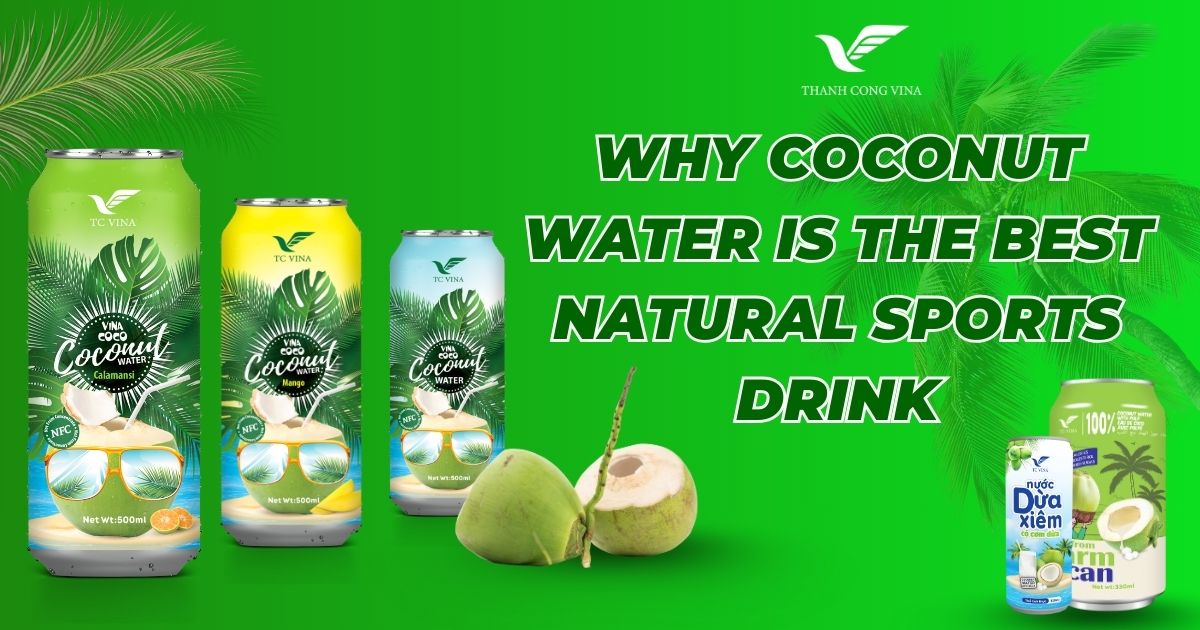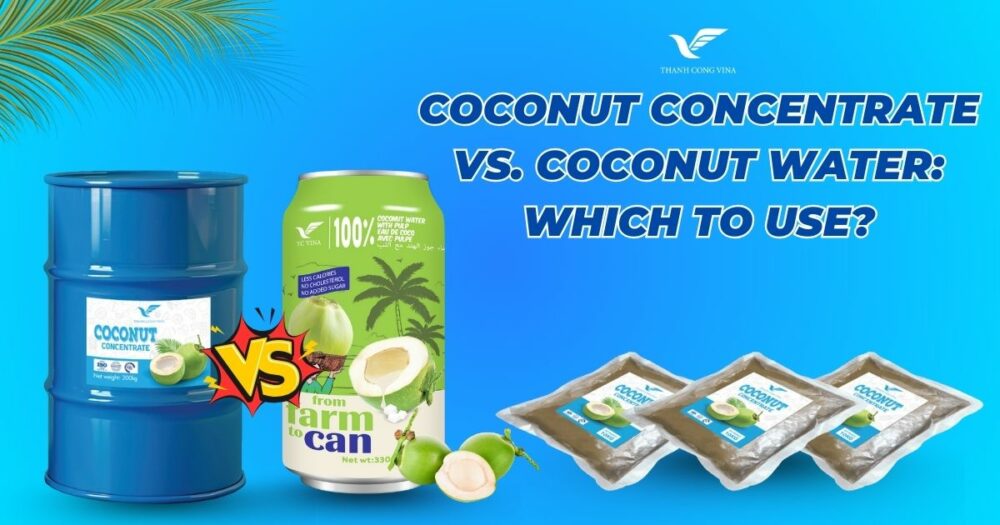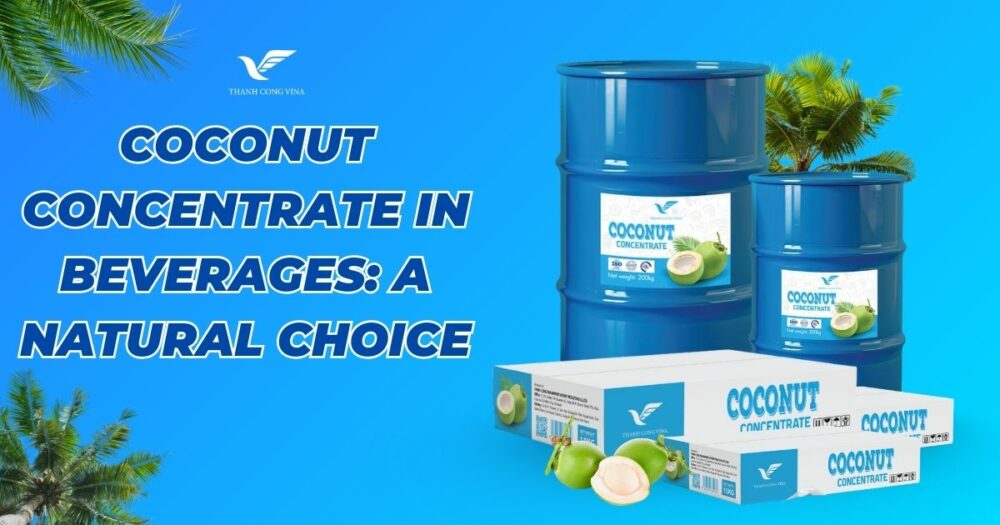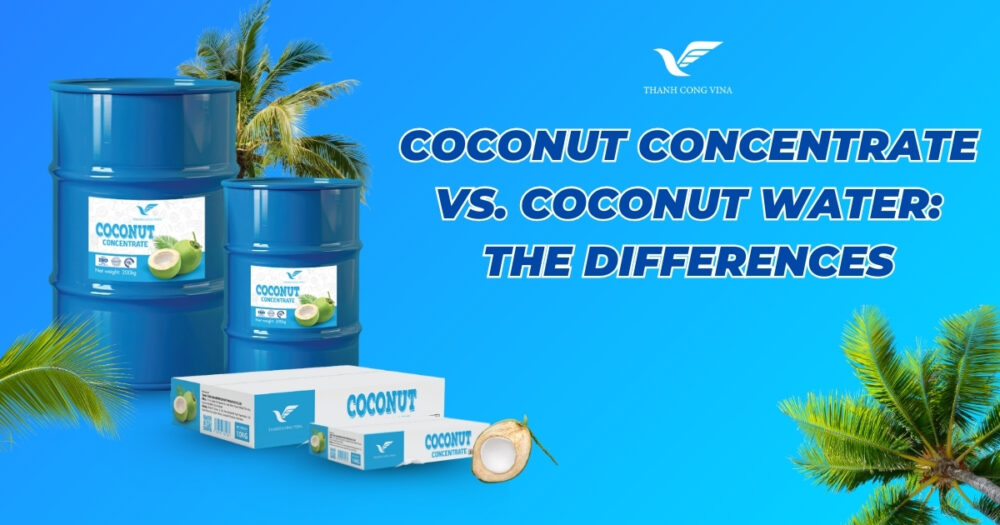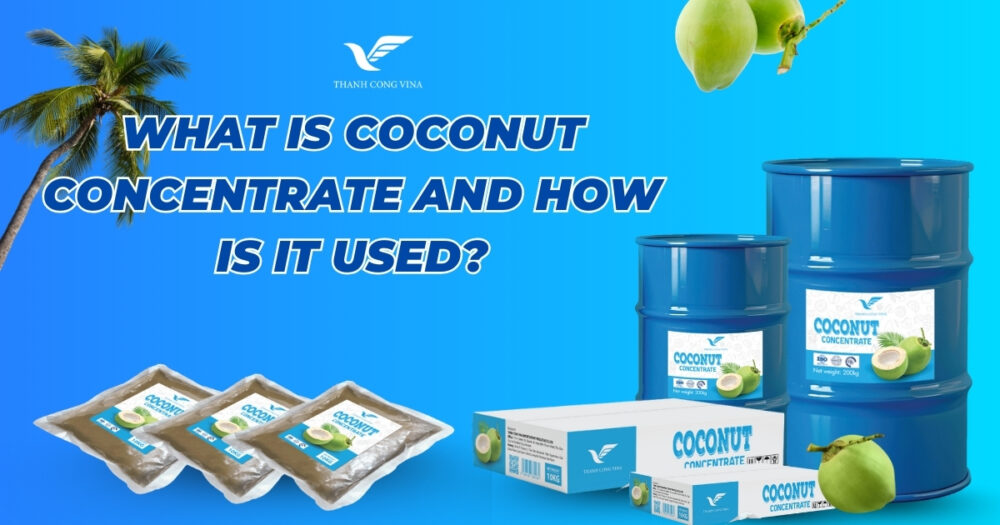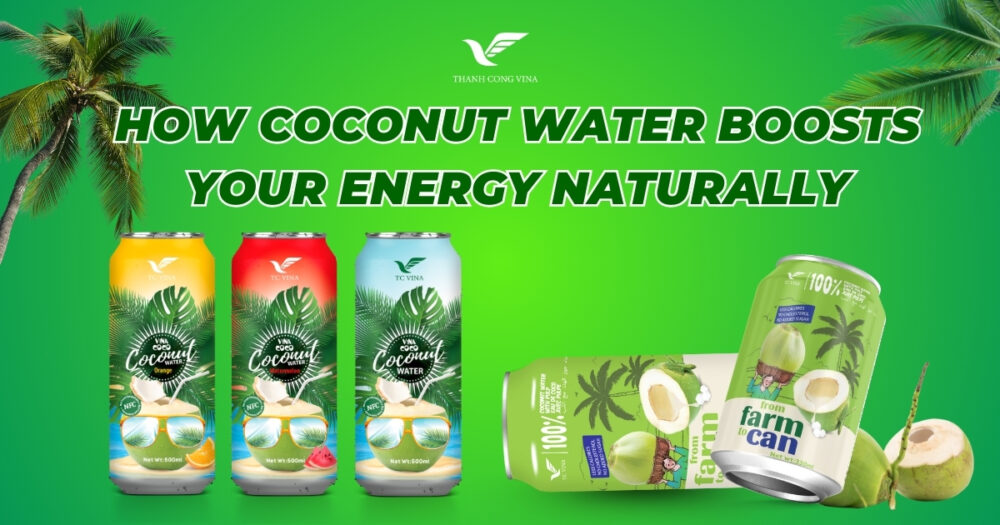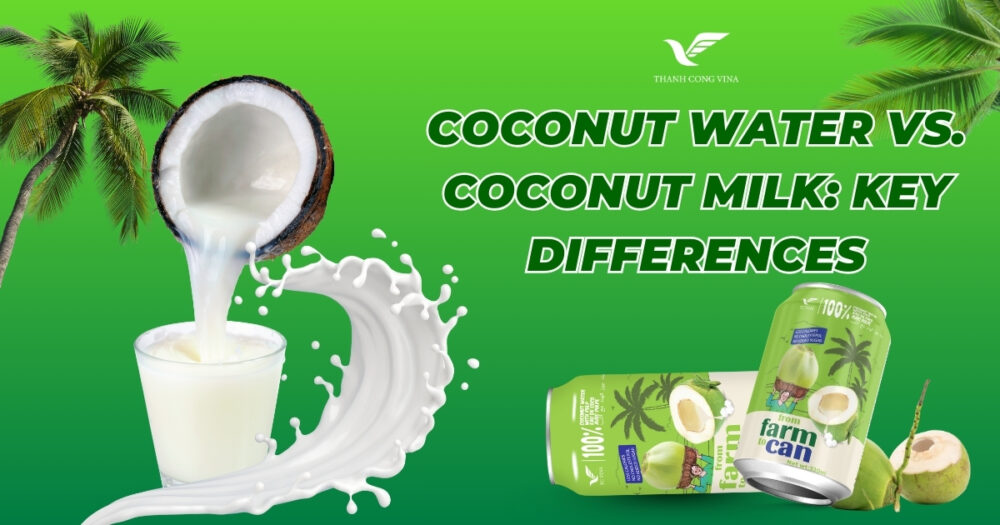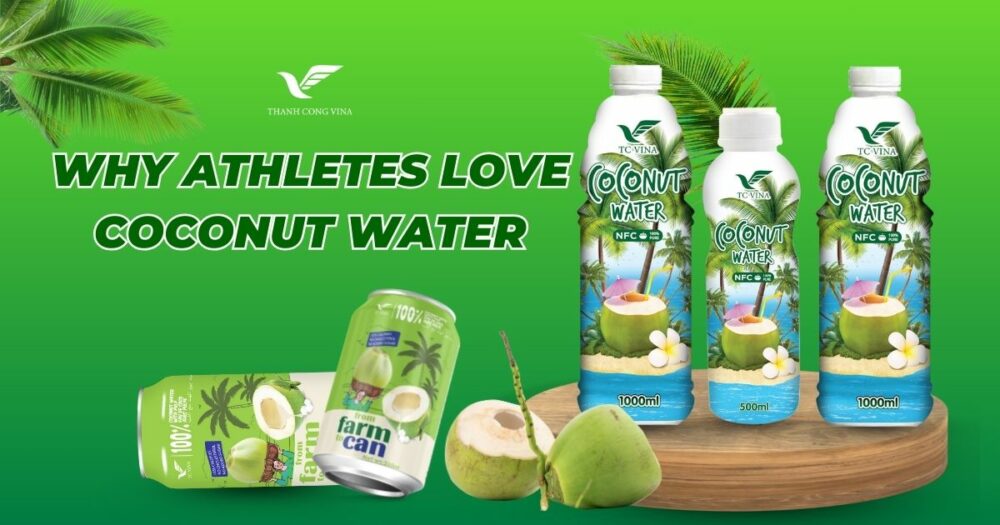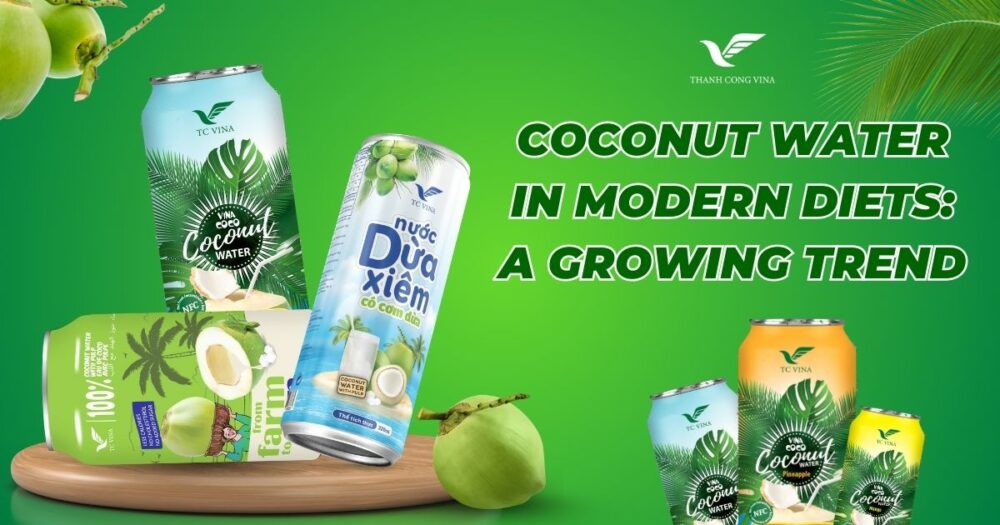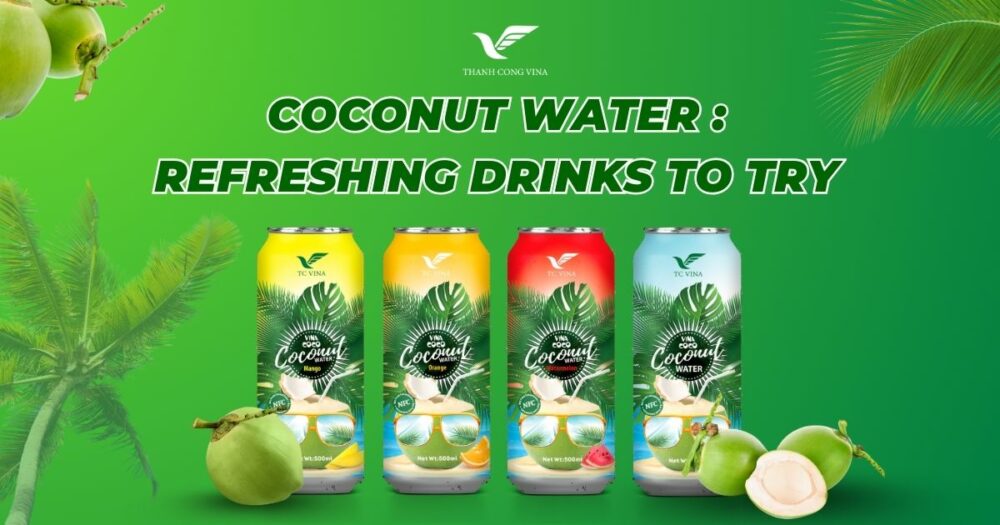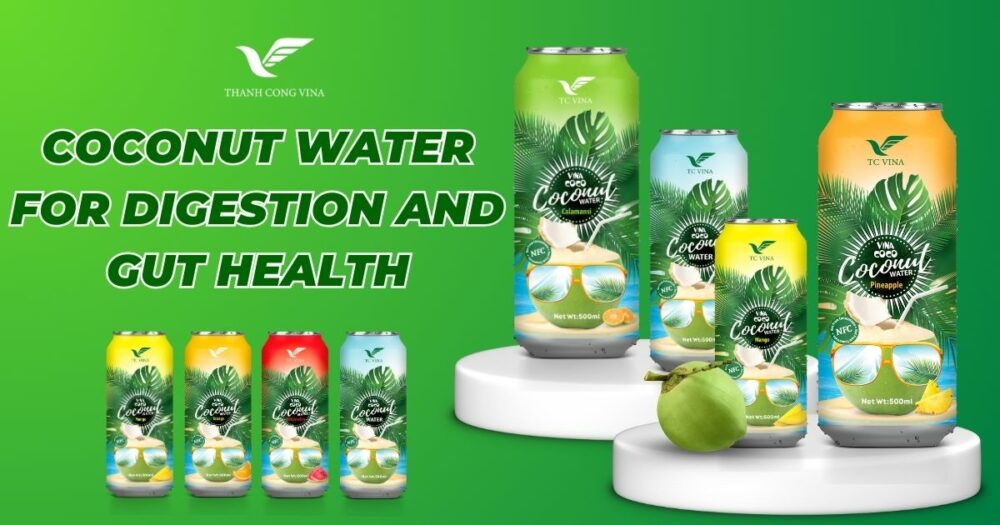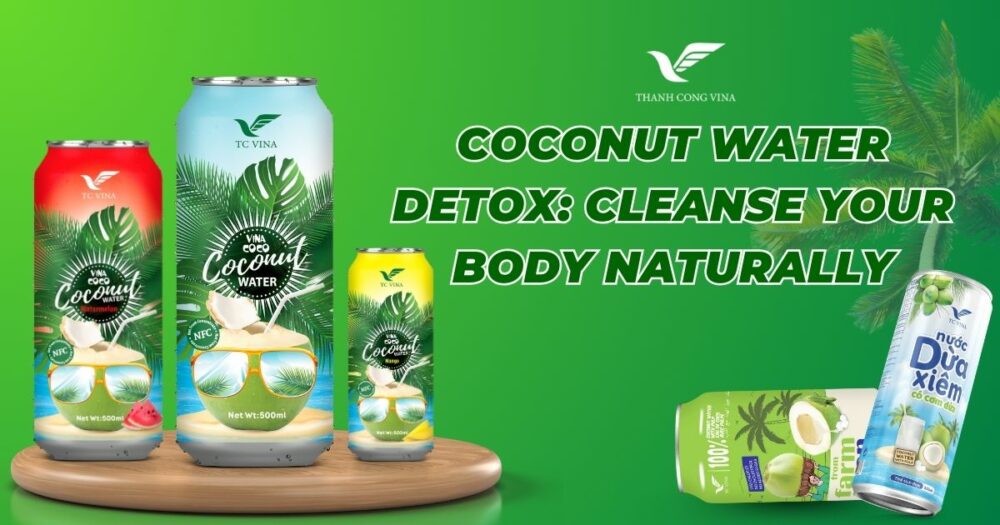Sports drinks have become a multi-billion-dollar industry, marketed as the ultimate solution for athletes and fitness enthusiasts seeking hydration and performance enhancement. However, many of these beverages are loaded with artificial flavors, added sugars, and synthetic electrolytes that may not always support long-term health.
In recent years, coconut water has emerged as a natural alternative to commercial sports drinks. With its unique electrolyte composition, refreshing taste, and numerous health benefits, has gained global recognition as the best natural sports drink. At Thanh Cong Vina, This article will explore in detail why it is superior to conventional sports drinks, its nutritional advantages, benefits for athletes, scientific backing, and how you can integrate it into your daily lifestyle.
What Is Coconut Water?
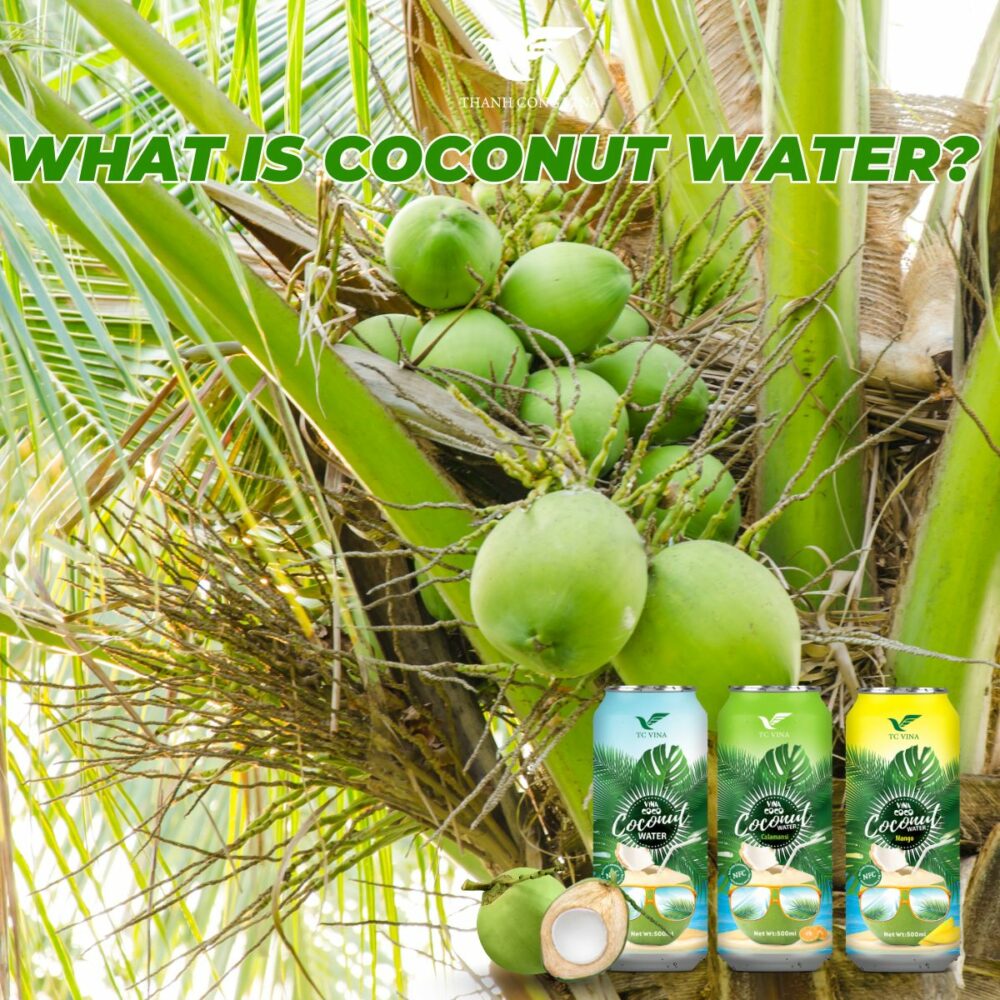
What Is Coconut Water?
Coconut water is the clear, mildly sweet liquid found inside young green coconuts. Unlike coconut milk, which is extracted from the grated flesh of mature coconuts, is naturally low in calories and fat-free.
Young coconuts, typically harvested between 6–8 months of maturity, yield the most hydrating and nutrient-rich coconut water. In tropical regions, it has been consumed for centuries as a refreshing drink and a natural remedy for dehydration. Today, it is widely available in both fresh and packaged forms.
Nutritional Profile of Coconut Water
One of the main reasons coconut water is considered the best natural sports drink is its exceptional nutritional composition.
Key Nutrients in Coconut Water (per 240ml serving)
-
Calories: 45–60
-
Carbohydrates: 9–11g (mainly natural sugars)
-
Potassium: ~600mg (more than a medium banana)
-
Sodium: ~250mg
-
Magnesium: ~25mg
-
Calcium: ~40mg
-
Phosphorus: ~20mg
Coconut water is also rich in bioactive enzymes, amino acids, antioxidants, and trace minerals. This natural balance of electrolytes and nutrients makes it highly effective for replenishing fluids lost during intense exercise.
The Role of Electrolytes in Sports Performance
Athletes and active individuals lose significant amounts of electrolytes through sweat, especially sodium, potassium, and magnesium. These minerals are crucial for:
-
Regulating muscle contractions
-
Preventing cramps and fatigue
-
Maintaining hydration balance
-
Supporting nerve function
While traditional sports drinks often replace electrolytes using synthetic sources and excessive sugar, coconut water offers a natural electrolyte solution with additional benefits.
Why Coconut Water Is the Best Natural Sports Drink
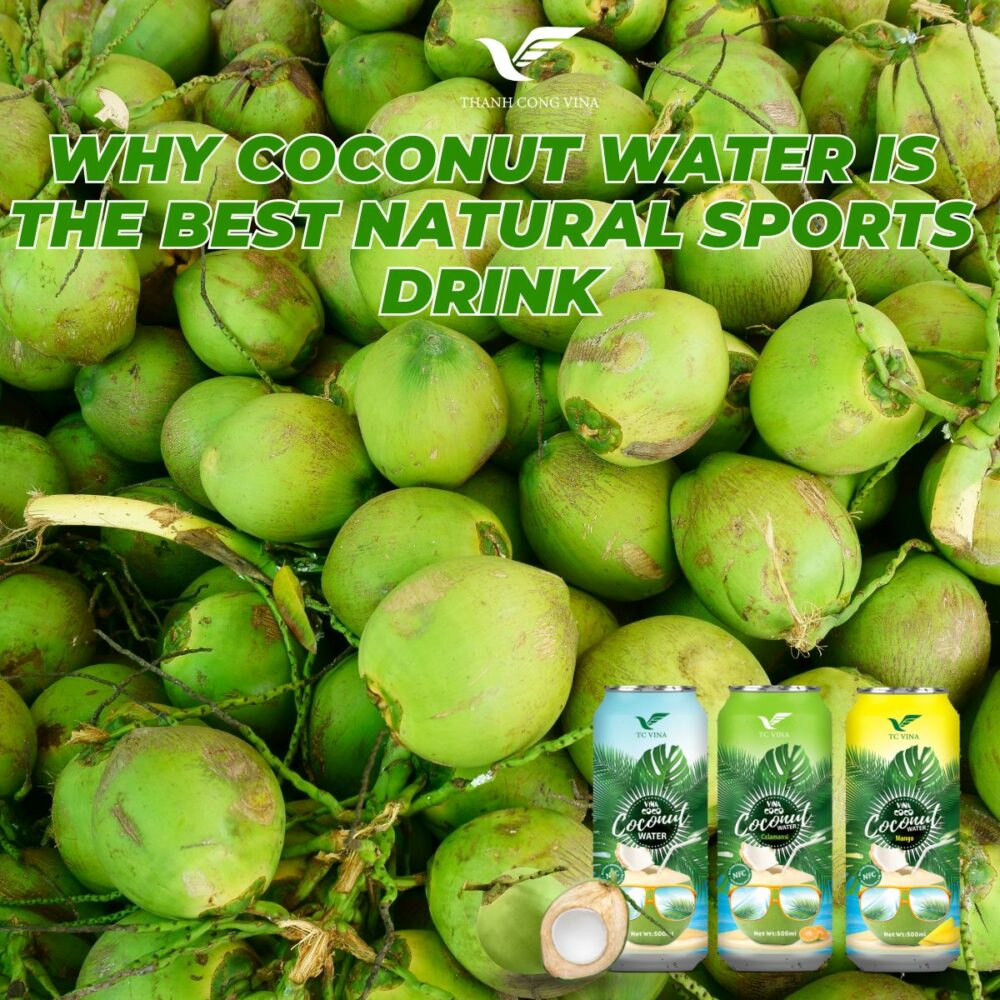
Why Coconut Water Is the Best Natural Sports Drink
1. Superior Hydration
Coconut water contains around 95% water, making it an effective rehydration beverage. Its natural electrolyte balance helps restore fluids more efficiently than plain water after exercise or physical exertion.
2. High in Potassium
Potassium is an essential mineral for athletes because it prevents muscle cramps, supports cardiovascular health, and regulates fluid balance. Coconut water provides more potassium per serving than many commercial sports drinks, making it ideal for endurance training.
3. Naturally Low in Sugar
Most sports drinks contain 20–30 grams of added sugar per bottle, which can lead to weight gain and energy crashes. On the other hand, contains only 6–8 grams of natural sugar per 240ml, providing energy without overwhelming the body with excess calories.
4. Faster Absorption
The natural isotonic properties of coconut water allow it to be absorbed quickly by the body. This makes it particularly effective for rehydration after high-intensity workouts or long-distance running.
5. Fewer Artificial Ingredients
Unlike commercial sports drinks, it is free from artificial colors, preservatives, and flavorings. For health-conscious athletes, this natural purity is a significant advantage.
6. Antioxidant Support
Exercise can increase oxidative stress in the body. Contains antioxidants such as vitamin C, which help fight free radicals, reduce inflammation, and support muscle recovery.
7. Weight-Friendly Option
Has fewer than 60 calories per cup, making it a lighter option compared to sugary sports drinks that can add unnecessary calories to an athlete’s diet.
Coconut Water vs. Commercial Sports Drinks
| Feature | Coconut Water | Sports Drinks |
|---|---|---|
| Electrolytes | Natural balance of potassium, sodium, magnesium | Artificially added |
| Sugar Content | 6–8g natural sugar | 20–30g added sugar |
| Calories (per 240ml) | 45–60 | 120–200 |
| Additives | None if pure | Artificial colors, preservatives |
| Hydration Efficiency | Quick absorption, isotonic | Effective but often sugar-heavy |
Clearly, coconut water offers a cleaner, more balanced option for hydration compared to synthetic sports drinks.
Scientific Evidence Supporting Coconut Water
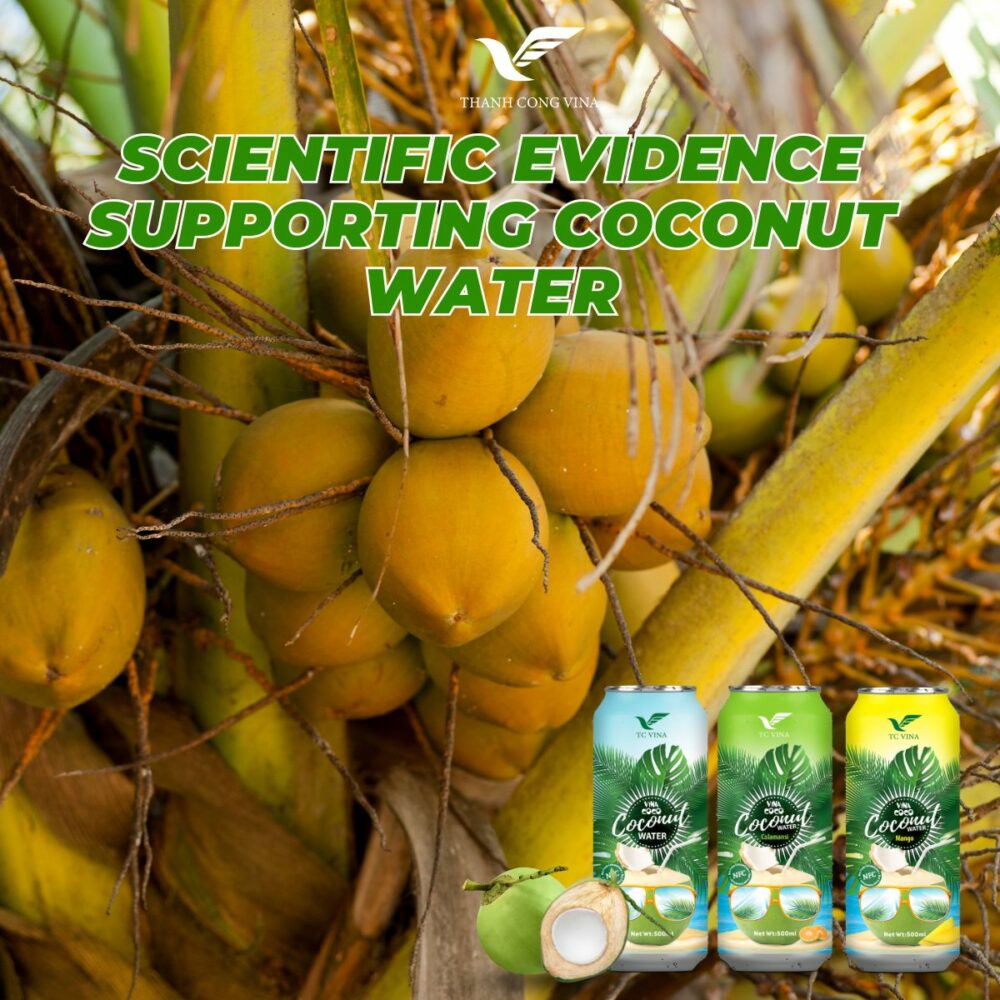
Scientific Evidence Supporting Coconut Water
Several studies highlight the benefits of coconut as a sports drink:
-
Electrolyte Replenishment: Research shows that coconut is as effective as commercial sports drinks in restoring hydration and electrolytes after exercise.
-
Exercise Recovery: A study published in the Journal of Physiological Anthropology and Applied Human Science found that coconut helped athletes recover faster compared to plain water.
-
Heart Health: The high potassium levels in coconut water have been linked to lower blood pressure and improved cardiovascular performance in athletes.
Coconut Water for Different Types of Athletes
Endurance Athletes
Marathon runners and cyclists lose significant amounts of electrolytes during long events. Coconut balance of potassium and sodium makes it ideal for sustaining endurance performance.
Gym and Fitness Enthusiasts
For weightlifters and gym-goers, helps prevent cramps and muscle fatigue while providing light hydration without bloating.
Outdoor Sports Players
In hot climates, footballers, tennis players, and other outdoor athletes benefit from coconut water’s rapid hydration and cooling effect.
Yoga and Wellness Practitioners
It is a gentle yet effective hydrator, making it perfect for yoga sessions, meditation, and holistic wellness practices.
Practical Ways to Use Coconut Water as a Sports Drink
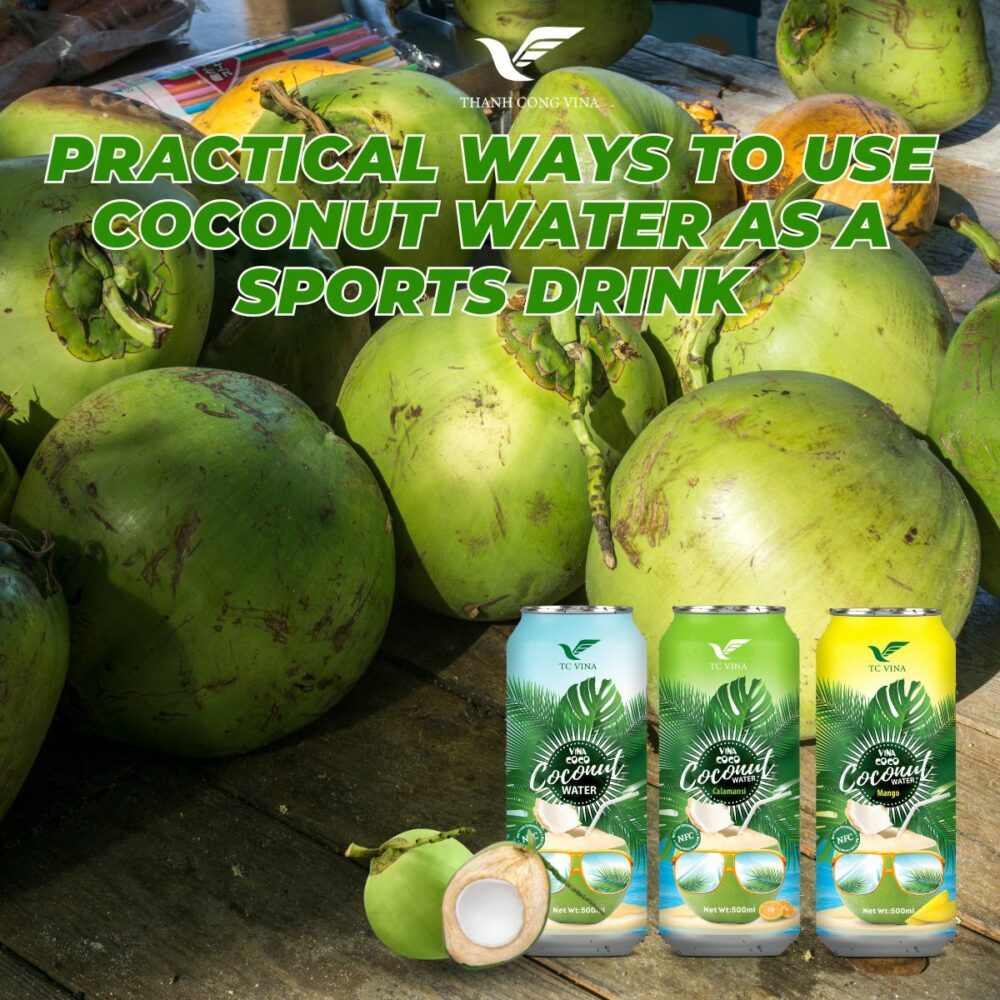
Practical Ways to Use Coconut Water as a Sports Drink
-
Post-Workout Recovery Drink: Consume 1 cup of it within 30 minutes after exercise.
-
Pre-Workout Hydration: Drink a small glass before exercise to prevent dehydration.
-
Homemade Sports Drink: Mix it with a pinch of sea salt and fresh lemon juice for enhanced hydration.
-
Smoothies: Blend itwith bananas, berries, or spinach for a nutrient-packed recovery smoothie.
-
Electrolyte Ice Cubes: Freeze coconut water into ice cubes and add to water bottles for extended hydration during workouts.
Coconut Water Beyond Sports: Additional Benefits
-
Supports Digestion: The natural enzymes aid in better nutrient absorption.
-
Promotes Kidney Health: May help reduce kidney stone formation.
-
Skin Health: Hydrates from the inside and contains antioxidants that improve skin clarity.
-
Boosts Immunity: Provides vitamin C and minerals that strengthen immune function.
How to Choose the Best Coconut Water
Fresh Coconut Water
-
Best taste and maximum nutrients
-
Limited availability outside tropical regions
Packaged Coconut Water
-
Convenient and widely available
-
Always check the label for “100% pure coconut water”
-
Avoid brands with added sugar or artificial flavoring
Organic Options
Opt for organic coconut water to ensure purity and support sustainable farming practices.
Conclusion: The Ultimate Natural Sports Drink
Coconut water is not just another health trend; it is backed by centuries of traditional use and modern scientific evidence. With its natural electrolyte balance, low sugar content, fast absorption, and additional health benefits, coconut outshines commercial sports drinks in every way.
At Thanh Cong Vina, For athletes, fitness enthusiasts, and anyone seeking healthier hydration, it is truly the best natural sports drink. Choosing it means choosing nature’s perfect hydration, free from artificial ingredients and full of essential nutrients.

